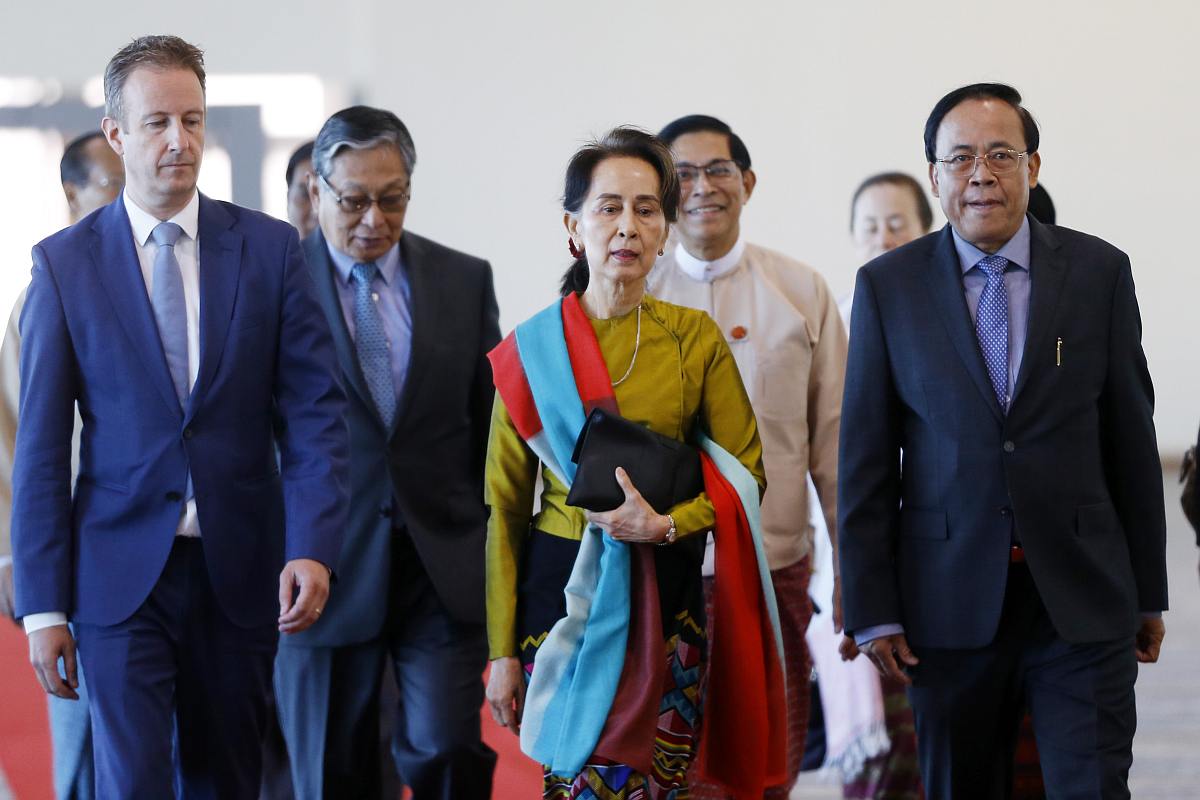Myanmar’s leader and Nobel Peace Prize laureate Aung San Suu Kyi has come a long way from democracy champion to defending her country against genocide charges. The shocking decision by the civilian leader to face the United Nation’s top court risks further damaging her image overseas and deepening the siege mentality at home.
“We stand with you,” proclaim billboards across Myanmar, sporting beaming portraits of the Nobel laureate as she prepares to face the International Court of Justice (ICJ) over the Rohingya crisis. Suu Kyi’s supporters are printing off T-shirts, organising rallies and even signing up to VIP tours to The Hague to offer their backing.
Advertisement
Political parties and even some rebel armed groups have also fallen over themselves to give their support, in a country where the Rohingya garner little sympathy and are widely regarded as illegal immigrants.
Yet overseas, particularly in the West and in Muslim countries, Suu Kyi’s reputation lies in tatters with multiple awards and even an honorary citizenship revoked.
Critics say “The Lady”, once lauded alongside Mahatma Gandhi and Nelson Mandela, has become an apologist for a murderous military intent on wiping out the country’s Rohingya Muslims.
The spectacle of Suu Kyi standing up in court on behalf of the nation might play well at home but she risks suffering a fatal blow to what remains of her international reputation.
According to news agency AFP, Yangon-based analyst David Mathieson, “If she’s only going to use the visit to demonstrate defiance and continue to defend the indefensible, then it only widens the impasse”.
On behalf of 57 Muslim countries, Gambia will call on the ICJ on December 10 to announce interim measures to prevent any further genocide by Myanmar.
The tiny, mainly Muslim West African state alleges Myanmar breached the UN’s Genocide Convention with its bloody crackdown against its Rohingya community two years ago.
Some 740,000 Rohingya fled into sprawling camps in Bangladesh, bringing with them accounts of widespread murder, rape, and arson- violence UN investigators branded as genocide.
Myanmar says the operations were justified to flush out Rohingya militants and insists abuse allegations are under investigation by its own committees. Rights groups say those panels have only whitewashed the atrocities.
The UN team also accused Suu Kyi and her government of complicity in the violence- an astounding fall from grace for the one-time rights icon who endured 15 years of house arrest under the former military junta.
She has consistently dismissed criticism of Myanmar’s military, including the damning UN report, insisting the outside world simply does not understand the situation’s complexities.
A tacit acknowledgment at the World Economic Forum last year that “the situation could have been handled better” did little to quell criticism.
(With inputs from AFP)











